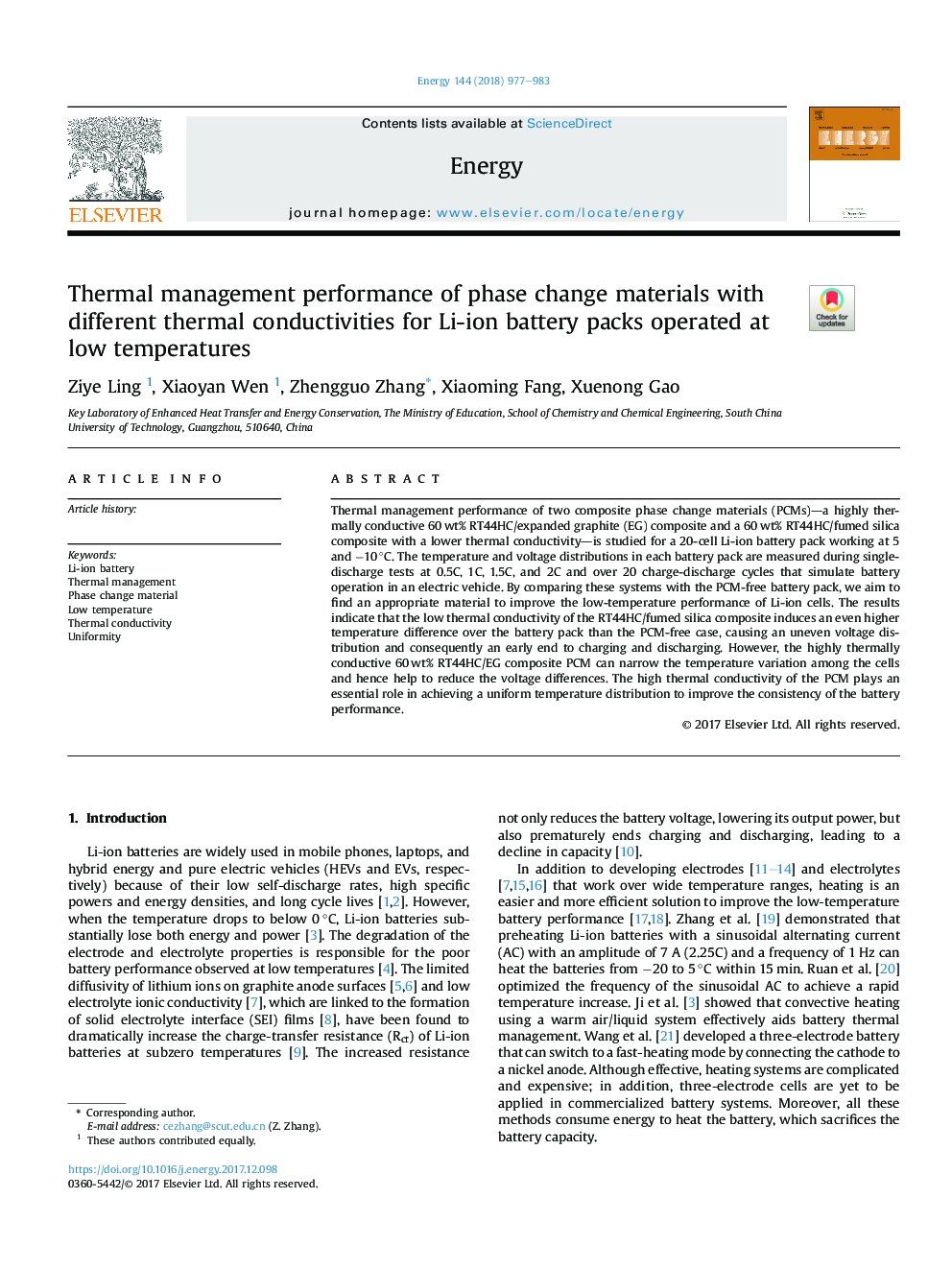| Article ID | Journal | Published Year | Pages | File Type |
|---|---|---|---|---|
| 8072398 | Energy | 2018 | 7 Pages |
Abstract
Thermal management performance of two composite phase change materials (PCMs)-a highly thermally conductive 60â¯wt% RT44HC/expanded graphite (EG) composite and a 60â¯wt% RT44HC/fumed silica composite with a lower thermal conductivity-is studied for a 20-cell Li-ion battery pack working at 5 and â10â¯Â°C. The temperature and voltage distributions in each battery pack are measured during single-discharge tests at 0.5C, 1C, 1.5C, and 2C and over 20 charge-discharge cycles that simulate battery operation in an electric vehicle. By comparing these systems with the PCM-free battery pack, we aim to find an appropriate material to improve the low-temperature performance of Li-ion cells. The results indicate that the low thermal conductivity of the RT44HC/fumed silica composite induces an even higher temperature difference over the battery pack than the PCM-free case, causing an uneven voltage distribution and consequently an early end to charging and discharging. However, the highly thermally conductive 60â¯wt% RT44HC/EG composite PCM can narrow the temperature variation among the cells and hence help to reduce the voltage differences. The high thermal conductivity of the PCM plays an essential role in achieving a uniform temperature distribution to improve the consistency of the battery performance.
Keywords
Related Topics
Physical Sciences and Engineering
Energy
Energy (General)
Authors
Ziye Ling, Xiaoyan Wen, Zhengguo Zhang, Xiaoming Fang, Xuenong Gao,
